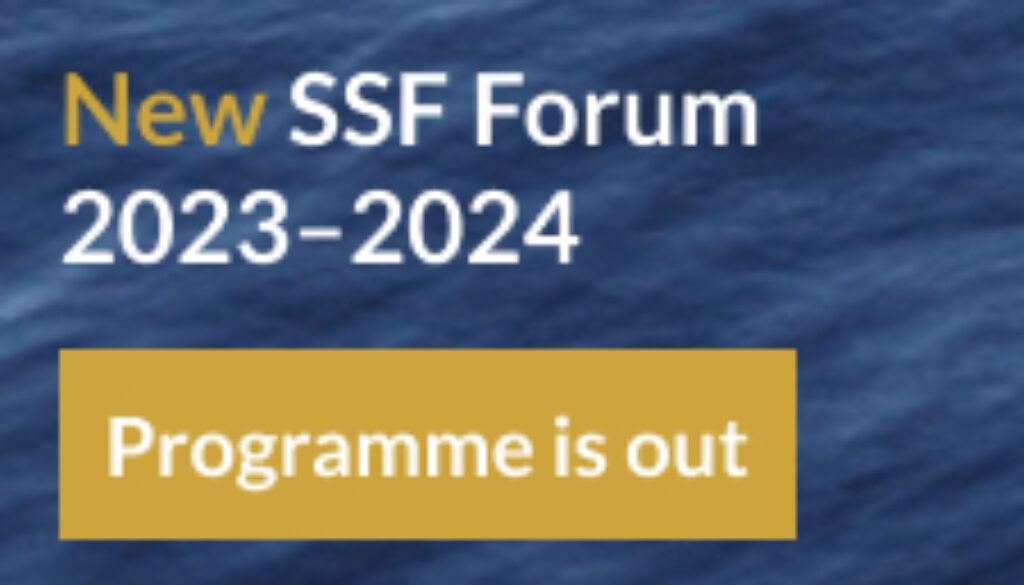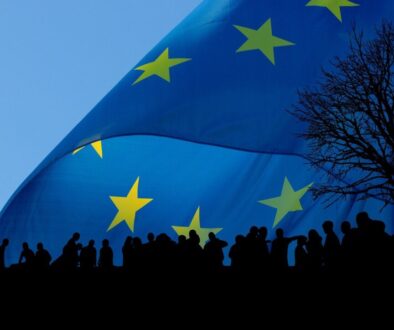The 2023–2024 programme for the Small-Scale Fishers’ Forum (SSF Forum), initiative promoted by the Friends of SSF, is now out, with the next season of activities promising to be very active as face-to-face events return to the agenda. The latest programme is the result of a ground-breaking consultative exercise held in March 2023, which saw small-scale fisheries stakeholders from 13 countries attend a two-day brainstorming session at FAO headquarters in Rome. The goal was to create a pragmatic SSF Forum programme that reflects the current needs of people working in the sector, as well as responding to the recommendations within the Regional Plan of Action for Small-Scale Fisheries in the Mediterranean and the Black Sea (RPOA-SSF) to offer capacity-building activities to support them. The four workshops planned so far – on non-indigenous species, marine pollution, strong SSF organizations and selective fishing gear selectivity – reflect that aim. With a hands-on, practical focus, the sessions will include group work and will present different case studies to ensure a dynamic exchange of real-world knowledge and experiences between participants from across the region.
“The RPOA-SSF is a strong framework, but unless you have stakeholders – including fishers – who are aware of it, who understand it and are willing to implement it, it remains theoretical.” said Antonis Petrou, representative of the Pancypriot Association of Professional Fishers (Cyprus).
“The input received means that the proposed programme will address issues that really matter to people whose livelihoods are bound up with the day-to-day realities of the small-scale sector,” commented Anna Carlson, GFCM Fishery Officer for Socioeconomic issues. “All four workshops’ proposed focus are on areas of true concern to fishers and fish workers. The venues also represent an opportunity for participants to know the specific challenges for SSF in different areas around the region.”
Participants at the consultative exercise split into small groups to discuss potential topics in detail, exploring what kind of capacity building was needed in each area, what audiences it would be most useful to target, and the likely benefits and expected outcomes of doing so. Results were then reported back in a plenary discussion, before an overall programme went to vote and was collectively agreed upon by everyone involved.
“This gathering shows that we want to find solutions!” declared Azedine Arhab, President of the Maghreb and North African Platform for Small-scale Fisheries and Aquaculture.
Tackling the increasing presence of non-indigenous species
The first topic for the programme is becoming more relevant by the day in the warming waters of the Mediterranean. ”Non-indigenous species: from health and safety to marketing opportunities” will tackle a fast-growing problem head on, from the basics of how to safely handle the new species spreading through our waters – some are extremely poisonous – to the potential for creating new markets and using fisheries to manage the species, for example in the case of blue crabs. The GFCM is currently supporting a pilot project on non-indigenous species in Türkiye, and so the workshop, organized in collaboration with the Mediterranean Conservation Society (MCS), will explore the potential for applying the lessons learned from this and other pilot activities to other contexts throughout the region. Registration is now open for the first workshop, which will take place in Gökova Bay, Türkiye, 21-23 November.
Building stronger SSF organizations
The second workshop – due to take place in Spain in spring 2024 and organized in collaboration with the Mediterranean Advisory Council (MEDAC) – will be on “Strong SSF organizations: the basis for developing projects and funding requests”. Small-scale fishers who join their forces together – in cooperatives, sales associations, entrepreneurial ventures and so on – tend to achieve much more than they can individually, but what are the secrets to getting it right? The SSF Forum will be hearing from fishers from across the region who have built successful organizations and who will share their experiences and advice.
Minimizing the impact of plastic pollution
“Marine pollution: impacts, interactions and solutions”, with a particular focus on how it relates to fisheries, is the topic of the third workshop, which is due to take place in Tunisia in autumn 2024. Participants will explore how to address pollution from small-scale fisheries and other sectors and how to contribute to minimizing and mitigating its impacts on the marine environment. They will also explore potential funding opportunities for fishers looking to create alternative livelihoods through anti-pollution initiatives, such as collecting marine litter or dealing with lost and abandoned fishing gear.
Embracing selective fishing gear
The last of the four workshops (tentatively planned for winter 2024 in Croatia and organized in collaboration with WWF) will be on “Selective fishing gear: from impacts to alternatives”, a subject that has two important sides to consider. On the one hand, there is a consensus that more should be done to reduce levels of discards and the incidental catch of vulnerable species by fisheries in the region and to improve environmental outcomes – and using more selective gear is one way to do so. However, it’s equally important to ensure that fishers don’t lose out due to smaller catches from more selective practices: the role that alternative livelihoods such as pescatourism could play here will also be discussed.
Everyone involved in planning the workshops agreed on the importance of engaging more fully with young people and women in the sector, so the crosscutting themes of generational turnover and gender equity will be addressed across all the sessions. “Women play so many important roles in the sector, but they lack visibility and recognition – we need to ensure they’re able to participate fully, and that they’re fairly rewarded for the work they do. And we’ve got to pay more attention to the next generation too, since they’re the future of the sector. It’s time for a new approach on both fronts, and that definitely needs to be reflected in the workshops” said Raquel Llopis Morell from the Associació Dones de la Mar del Grau de Gandía, Comunidad Valenciana, at the planning session. Each session will also include a “training the trainers” element, to enable participants to share the lessons they learn when they return to their homes, scaling up the regional reach and impact of the programme.
Registration is now open for the first workshop on “Non-indigenous species: from health and safety to marketing opportunities”. Since it is an in-person event, places are limited; should the event be oversubscribed, participants will be selected in line with criteria agreed at the planning meeting so as to ensure a fair balance of factors such as geography, age and gender. Further details on the next three workshops will be released shortly.
In 2024, we will be gearing up to celebrate the mid-term milestone of the RPOA-SSF, ringing in another significant year for small-scale fisheries in the Mediterranean and the Black Sea. Mark your calendars!
Organized by the GFCM and the regional Friends of Small-Scale Fisheries network, the SSF Forum brings together small-scale fishers, fish workers and other stakeholders from around the Mediterranean and the Black Sea, to discuss key sector issues, share best practices, and develop their capacities to build a sustainable future. LIFE is a proud member of Friends of Small-Scale Fisheries.




